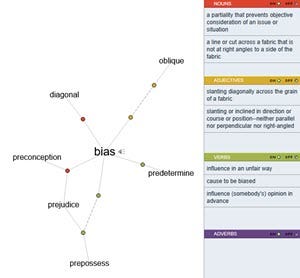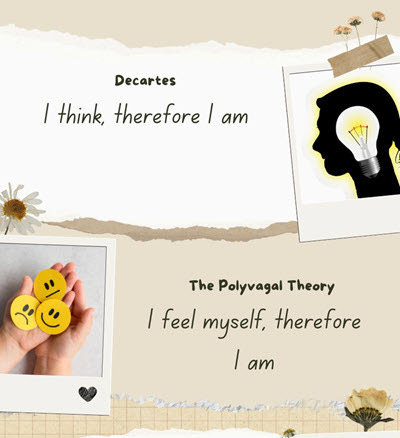Let's start ...
or, where do we start?
We’ll begin with a set of quotes from one of the books I’m currently re-reading, Our Polyvagal World: How Safety and Trauma Change Us,1 by Stephen Porges and Seth Porges.
On the opening page, are two quotes:
“I think, therefore I am.” ~~ Descartes
AND
“I feel myself, therefore I am.” ~~The Polyvagal Theory
No, I haven’t asked the authors why they chose those quotes.
Yet, I share with you why they have importance to me.
Importance
My entire lifetime has been affected (negatively) by people asserting that thinking/reasoning and sensing are on the opposite ends of a linear scale from each other; and that one is better than the other. Thinking was taught to me as “the way” to be an upright, staunch, sane human being. A slew of biases2.

I struggled heavily with it because I “knew” it wasn’t true — and I couldn’t “prove it”; so, not only wasn’t I taken seriously, I was ridiculed, punitively treated, and labeled pejoratively.
As I read this opening page for the first time with the quotes, I felt — a “phew!” — a sensation in my body that I interpret as “I feel safe”.
As we start exploring, I invite your musing with this question:
What if thinking and sensing are moments on a spectrum, neither better nor worse than the other?
I do not allow for comments on my posts, for the sake of my sanity.
And, if you do want to share your musing of my questions please feel free to utilize this form (it does NOT put you on a mailing list).
What is Polyvagal Theory? | Polyvagal Institute, a source online I trust. One of the founding members is Stephen Porges.
Bias. We all have ‘em. We learn ‘em. I believe it’s part-and-parcel of the use of words/verbal languaging.



